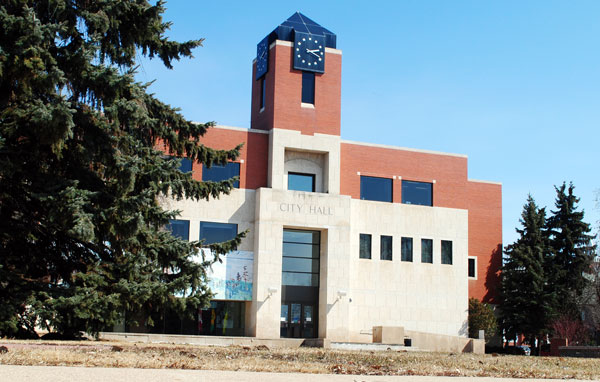Prince Albert City council rejected a motion to halt shutting off water to any homes for any reason while the province is in a state of emergency due to COVID-19.
The Motion by Ward 2 Coun. Terra Lennox-Zepp read; “That The City refrain from shutting off residential water to any homes for reason of unpaid bills while Saskatchewan is under a Provincial State of Emergency due to the COVID-19 Pandemic.”
Lennox-Zepp said it would be an appropriate decision given the recent outbreak of COVID-19 cases in Prince Albert.
“It can’t be permanent, obviously, and I know that the department does continue to contact people in arrears,” she said during the meeting. “As our reports have told us, they try to make payment plans (and) they are reaching out, but perhaps we as a city need to consider refraining from shutting off residential water for unpaid bills at this time until Saskatchewan is no longer under a state of emergency.”
The motion fell by an 8-2 recorded vote. Ward 1 Coun. Charlene Miller, who was the seconder, was only other vote in favour along with Lennox-Zepp, Voting against were Mayor Greg Dionne, Ward 3 Coun. Evert Botha, Ward 4 Coun. Don Cody, Ward 5 Coun. Dennis Ogrodnick, Ward 6 Coun. Blake Edwards, Ward 7 Coun. Dennis Nowolselsky and Ward 8 Coun. Ted Zurakowski.
The City of Prince Albert announced it would no longer shut off water for accounts in arrears during the COVID-19 outbreak on Friday, March 27. The city stopped shutting off water for unpaid accounts on Friday, March 20, but didn’t formally announce the decision until later.
The city recently decided it would resume water shutoffs for unpaid bills.
Lennox-Zepp said the issue continues to be an important one with the re-emergence of COVID-19 in the community.
She added that people have to be consistent in following public health rules to prevent the spread of COVID-19, and that requires running water. She also noted that arrears are a significant issue for the City even before the pandemic.
“It is a balancing act,” she said. “There are other solutions–ways that we have discussed in the past–for what can we do when bills get to a large arrears…. I am not just talking about the pandemic, and we know this. We have over $3 million of utility bills arrears that are not just because of the pandemic. That’s in our reports. It has been ongoing sometime due to our collection problems.”
Dionne challenged the notion that there was $3 million in arrears. He asked for the outstanding amount of write-offs over the last five years. City financial director Cheryl Tkachuk estimated the amount is around $1,400,0000. She then clarified that that the $3 million figure did not include the bad debt expense.
Dionne said he would not be supporting the motion but wondered how the city could collect the arrears.
“I am a taxpayer and I’m not prepared to pay for somebody else’s arrears. And I understand where you are coming from with the pandemic, but we have given that opportunity and it has just proven that it is too costly that we cannot afford and I will not ask the taxpayers to subsidize, at this point,” Dionne said.
The net collectable amount was not readily available.
Coun. Botha also sought clarity about the unpaid accounts before casting his vote. He said many community members have fallen on hard times, and some of these accounts would never be repaid.
Tkachuk clarified that as long as people make payment plans and follow them, the city does not shut off water.
“I do have a sense of comfort in your assurances that if somebody has made a payment plan with your department, and as long as they meet the plan, that we have a little bit of grace with them through this time,” Botha said.
Coun. Zurakowski asked if it was deliberate and intentional effort to evade some partial payment of the water bills. Tkachuk explained that there are a mix of people who are very good at paying water bills, and others who go on multiple payment plans.
She said multiple efforts are made to establish contact before the houses are tagged. Shutting off water service is one of the last enforcement tactics. Tkachuk said the first tagging would happen later in the week.
People with over $800 in arears will be targeted first when the program restarts. Lennox-Zepp said hearing that people who make payment plans are not shut off was a positive.
There are roughly 92 properties in arrears, according to Tkachuk, with some owing more than $1,000.
-with files from Jason Kerr, Prince Albert Daily Herald


